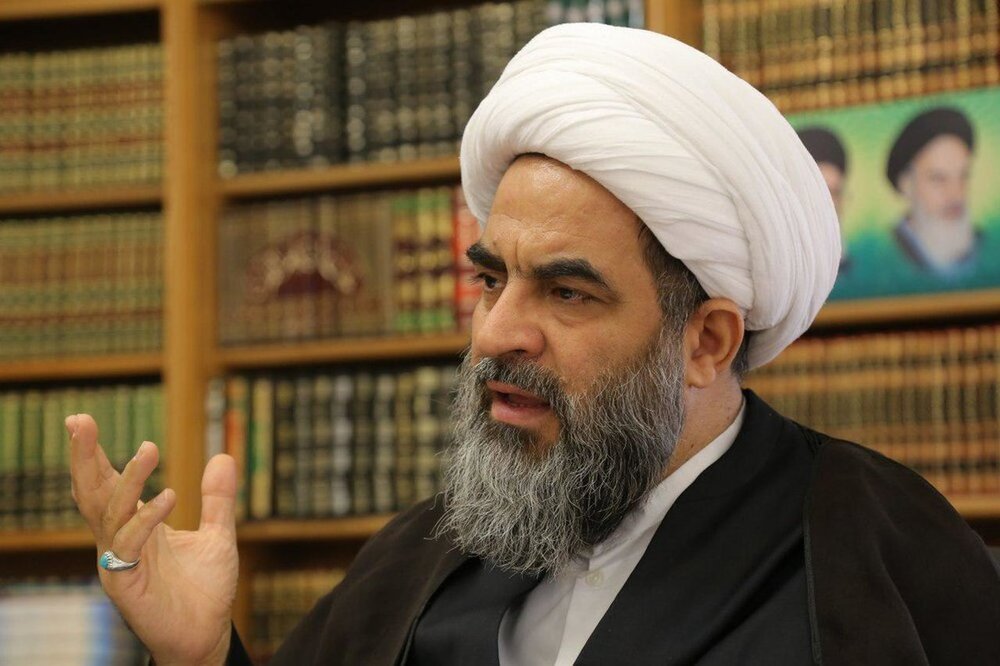AhlulBayt News Agency (ABNA): A member of Qom's Society of Seminary Teachers said,” The Holy Prophet Muhammad (PBUH) said that an obligatory duty for every human being is to preserve the religion.”
Senior Shia cleric Ayatollah Mohammad Javad Fazel Lankarani stated at the resistance jurisprudence conference honoring Allameh Seyyed Jafar Morteza Al-Amili on Wednesday, October 25, which was held at the conference hall of Dar al-Shifa School in Qom, that the word resistance is derived from religion and common in our politics.
Pointing out that the Holy Quran and Islam have emphasized resistance and perseverance, he said,” resistance is divided into three categories: faith, morality and preservation of religion.”
A member of Qom’s Society of Seminary teachers stated that man should be resistant in his beliefs, i.e., monotheism, resurrection, etc., and added,” Man should maintain his beliefs and not deviate from it.”
The cleric went on to say that perseverance in moral affairs is referred to as patience, he pointed out,” The Holy Prophet (PBUH) said that an obligatory duty for every human being is to preserve religion.”
Ayatollah Fazel Lankarani further noted that the need to defend the whole of Islam is an obligation and clarified,” Resistance is different from defensive jihad because defensive jihad is not obligatory on women, but there is no difference in resistance among men and women.”
A member of Qom Seminary Teachers Society stated that the greatest example of resistance in history is the Karbala uprising and expressed,” If we want resistance jurisprudence to be strong, you must be active in the history of the Karbala uprising and maintain its lessons.”
He continued by saying that many verses of the Holy Quran are dedicated to the initial jihad, and said,” In the Quran, the term fitna is used in several cases to mean polytheism.”
Ayatollah Fazil Lankarani added,” It is mentioned in the hadiths that if a person does not resist and remains silent in defense of Islam and religion, he has also left God's guardianship.”
Stating that resistance is a moral obligation to preserve religion, he said,” Resistance is to confront the oppressor.”
A member of the Qom seminary community of teachers pointed out that traces of resistance are present throughout religion and jurisprudence and stated,” One of the important duties of the Prophet (PBUH) was the establishment of religion, as this matter is obligatory for the ruler of religion.”
Stating that resistance is the cause of the survival of the religion and honor of Muslims, he said,” The stronger the resistance, the more humiliating the disbelief will be.”
Ayatollah Fazil Lankarani added,” Today, some people want to set the conditions in such a way that infidels and Daesh can rule over Muslims by expressing human rights.”
He pointed out that in Sharia, it is forbidden for an infidel to judge between two Muslims, and he pointed out,” If there is no resistance, then the infidels will judge among Muslims.”
The Ayatollah went on to say that we must resist for the survival of religion and said,” We must also resist people who want to loosen and shake the rulings of Islam.”
Pointing out that one should not make friendship with infidels, Ayatollah Fazel Lankarani reminded,” There is no merit in friendship and brotherhood among Muslims and infidels, and these issues are all examples of resistance.”
..................
End/ 257

